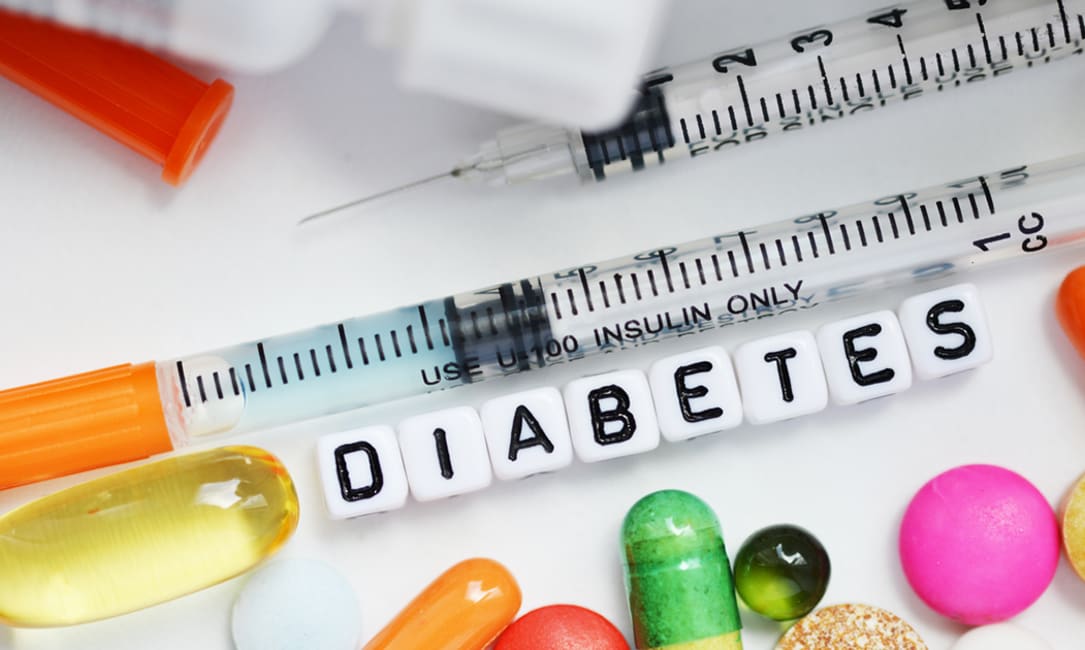Diabetes, also known as Diabetes mellitus, is a chronic metabolic disease that increases blood sugar(glucose) level. Insulin is a hormone that moves sugar from the blood into the cells to be stored and used for energy. In the presence of diabetes, the body either cannot effectively use the insulin it makes or doesn’t make enough insulin.
Diabetes is of different types:
- Type 1 diabetes: this happens to be an autoimmune disease where the body’s immune system attacks and destroys cells in the pancreas where insulin is being manufactured. It is not very clear why this happens but as a result, insulin production is brought to little or nothing.
- Type 2 diabetes: it occurs when the body becomes resistant to insulin causing sugar to accumulate in the blood.
- Prediabetes: the blood sugar level becomes higher than normal but not high enough to be called Type 2 diabetes.
- Gestational diabetes: is high blood pressure during pregnancy. Insulin-blocking hormones that are produced by the placenta cause this type.
Note: Some of us might have heard about Diabetes insipidus. This is not related to diabetes mellitus as described above; it is a condition in which the kidneys remove overly excess fluid from the body.
Going further, each type has its own unique symptoms, causes, and treatments but take note that the major cause of the symptoms is rising blood sugar level. Also, some symptoms are gender particular.
Symptoms in men: decreased sex drive, erectile dysfunction, and poor muscle strength.
Symptoms in women: urinary tract infections, yeast infections, and dry, itchy skin.
- Type 1 diabetes
Symptoms of type 1 include extreme hunger, increased thirst, unintentional weight loss, frequent urination, blurry vision, tiredness, and it may also result in mood changes. As I stated earlier, the cause of this type is not exactly known but genes may play a vital role for some people. It could also be that a virus sets off the immune system attack. The risk factors for this type include being a child or teenager, having a parent or sibling with the condition, or carrying certain genes that are linked to the disease. Insulin is the main treatment for type 1 diabetes. It replaces the hormone the body isn’t able to produce. There are four types of commonly used insulin differentiated by the rate at which they start to work and how long their effects last. We have the Rapid-acting insulin, Short-acting insulin, Intermediate-acting insulin, and Long-acting insulin. Health professionals also recommend that one limits the number of carbohydrates consumed daily.
- Type 2 diabetes
The symptoms are the same as in type 1 but with slow healing sores. It may also bring about recurring infections because elevated glucose levels make it hard for the body to heal. Causes include; obesity, genetics, and lifestyle factors. Risk factors like being overweight, aged 45 or older, having prediabetes, having high cholesterol, and not being physically active are all associated with type 2. Diet and exercise can help some people manage this type. If lifestyle changes aren’t enough to lower blood sugar then medication will have to be introduced. Fruits, vegetables, whole grains, lean protein such as poultry and fish, healthy fats like olive oil and nuts should be included in the diet.
- Gestational diabetes
Most women with this type don’t have any symptoms but in rare cases, one will experience increased thirst or urination. It is as a result of hormonal changes during pregnancy. Your risk for it increases if you are overweight, over 25, had gestational diabetes during a post-pregnancy, have given birth to a baby weighing more than 9 pounds, have a family history of type 2 diabetes, or have polycystic ovary syndrome(PCOS). To control this diabetes type, one will need to monitor the blood sugar level several times a day during pregnancy. Insulin will also be used to lower their blood sugar if the need arises. Eating a balanced diet is important for both mother and child during these nine months. Making healthy food choices will help to avoid taking medications.

